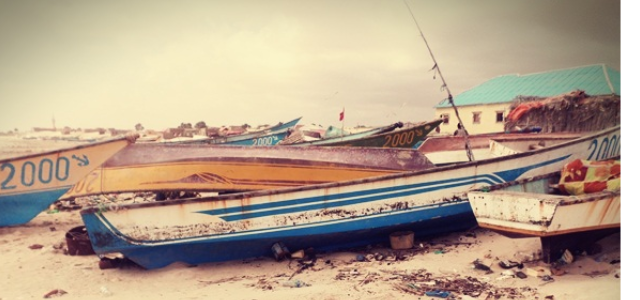The United Nations Food Organization (FAO) and the Puntland Ministry of Fisheries are facing mounting criticism over their failure to effectively reach and provide essential resources to remote areas in the Indian Ocean and the Red Sea in northeastern Somalia.
Communities residing in these isolated regions have long complained of neglect and a lack of support, leaving them vulnerable to food scarcity and economic hardship.
Despite the FAO's mandate to ensure food security and nutrition for all, numerous coastal communities in the Indian Ocean and Red Sea areas have been left to fend for themselves. The absence of regular visits by the organization's representatives has only deepened the plight of these remote populations.
The resilient fishermen and their families settled in remote coastal areas, are struggling to sustain their livelihoods and ensure proper nourishment for their families due to the negligent approach of the FAO and the Ministry of Fisheries. Their pleas for assistance remain unheard and their reliance on a depleting marine ecosystem has heightened concerns about the sustainability of their way of life.
Lack of essential equipment, such as fishing gear, refrigeration facilities, and adequate storage, continues to hamper the efforts of these remote fishing communities. The failure of the Ministry of Fisheries And FAO organization to address these pressing needs has further exacerbated their struggles. As a result, inhabitants in these areas face dwindling fish stocks, leading to reduced incomes and increased food insecurity.
Many local fishermen voiced their frustrations, criticizing the lack of employment opportunities and the absence of support in the form of training or workshops to enhance their fishing techniques and business skills. Without proper guidance and resources, these individuals are unable to explore alternative revenue
Moreover, the absence of proper infrastructure such as ice factories poses further challenges for these coastal communities , so The situation demands immediate attention from both FAO organazation and the Puntland Ministry of Fisheries to address the pressing needs and alleviate the plight of these communities.
The organizations must work together to develop long-term sustainable solutions, accounting for the unique challenges associated with serving remote areas.
Local NGOs and civil society groups have begun highlighting the issue, urging the government and international agencies to step up their efforts. These groups are advocating for the establishment of regional hubs that can serve as centralized locations for aid distribution, ensuring a more efficient flow of resources to those most in need.
It is vital that prompt action be taken to bridge the gap between these neglected coastal communities and the support they so desperately require. Ensuring food security, providing vocational training, and investing in robust infrastructure would undoubtedly promote sustainable development and improve the living conditions of vulnerable populations in the Indian Ocean and Red Sea regions.

